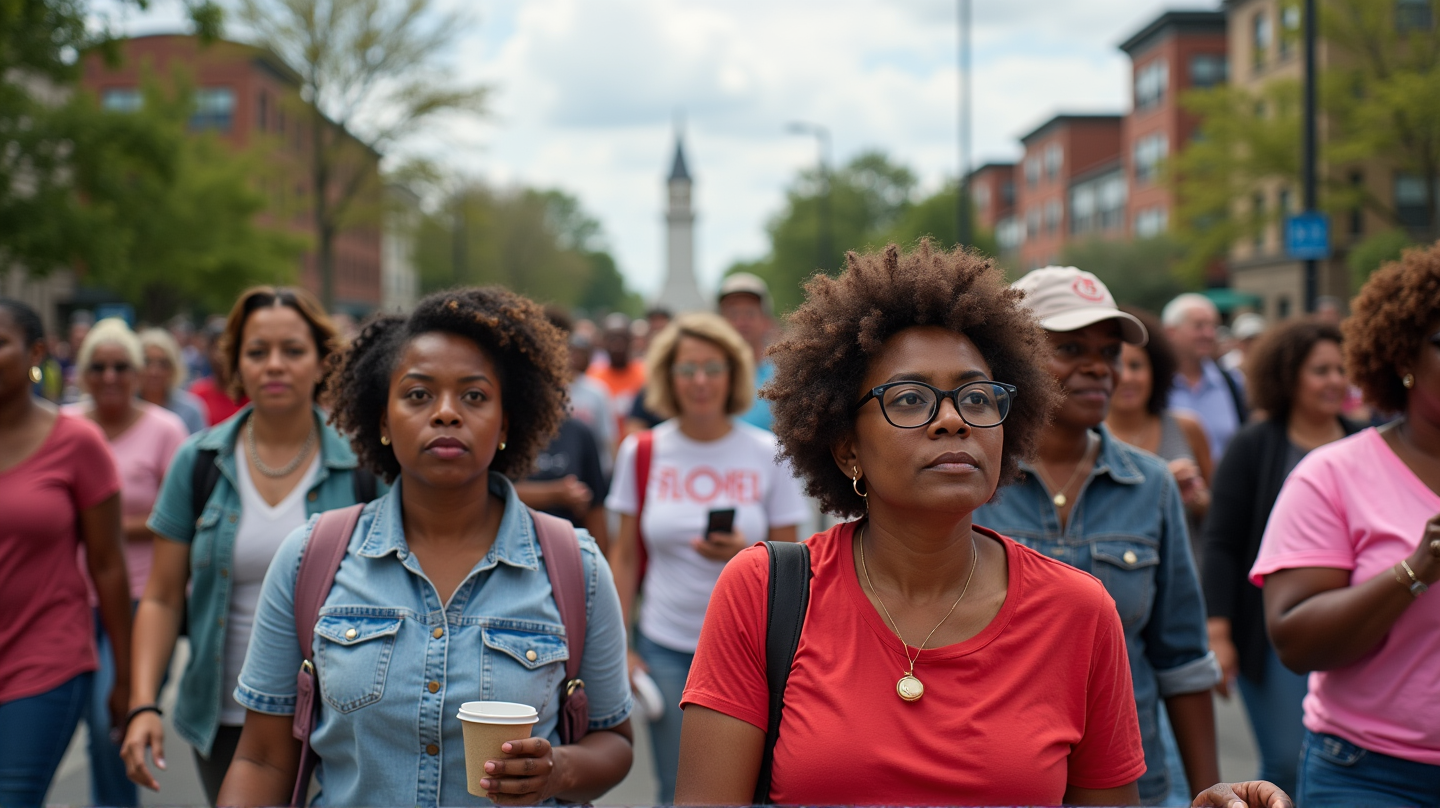Echoes of Equality: Deep South's Health Care Battles Mirror Civil Rights Struggles
In Montgomery, Ala., health activists like Tara Campbell continue the legacy of civil rights by advocating for equitable health care access, echoing past battles.

From Cheer Tunnels to Legacy Halls
Early Saturday mornings in Montgomery see Tara Campbell leading a spirited group of women donning superhero socks and bright sneakers through a community walk with GirlTrek, echoing a tradition steeped in both health advocacy and civil rights history. At the heart of this movement is the Bricklayers Hall, the once nerve center of the Montgomery bus boycott, now revitalized as a beacon for health activism, where Campbell’s office stands where Rev. Martin Luther King Jr. once strategized change.
Weaving Health with History
In the very streets where 1965’s icons marched to rid segregation’s shackles, Campbell and her peers march anew, advocating for health care as an undeniable civil right. This movement, vibrant in its pursuit of equitable health care, finds its roots deeply intertwined with civil rights milestones—just as the push for voter rights and desegregation once did. According to News From The States, the shared struggle for Medicaid reminds us that desegregation wasn’t just in schools; it wove through hospital halls too.
Bridging Past and Present Struggles
Today, the Deep South’s health battles are a modern echo of the past, with Alabama representing stark contrasts: a hub of rich civil rights history yet a battleground for equitable health access. It’s a current lament where Medicaid’s absence is felt deeply in communities plagued by income inequality and poor health outcomes. Efforts to expand Medicaid amidst historic health care neglect reflect the continued fight for justice, as chronicled in Stewart’s political narrative, amid the resistance echoing past defiance to change.
Steps on Sacred Ground
As Campbell guides her walking group through Montgomery’s historic streets, where once 50,000 marched for civil liberties, their efforts mirror those of the past. “Walking on sacred ground,” one walker whispered, aware of their footsteps’ profound legacy. Their path takes them through Centennial Hill, where fights for health justice and systemic change resound like drumbeats in the air—calling, hopeful, courageous.
Vision Beyond Barriers
Yet inside the halls where action once lived, inspiration, like air, fills their lungs. Conversations of working mothers trapped between income barriers and insurance gaps spark action. As Jackson noted, “injustice can be transformed into justice,” reinforcing a mantra through their assembly—to connect, to care, to march on.
A Legacy in Each Step
As these women set off on their two-mile journey, the fervor to push for Medicaid echoes ancient calls for freedom. Despite policy challenges, their resolve mirrors those etched in history books. The sense that where women walk, change follows becomes not just a motto, but a living testament to their relentless spirit. They walk, hoping to inspire change in a state where legislative heart still battles with its historical soul, echoing the activism that shaped a nation’s conscience.
Each footstep is a narrative of resilience, weaving past trumpets of change with contemporary cries for health justice in America’s deep and enduring south.





